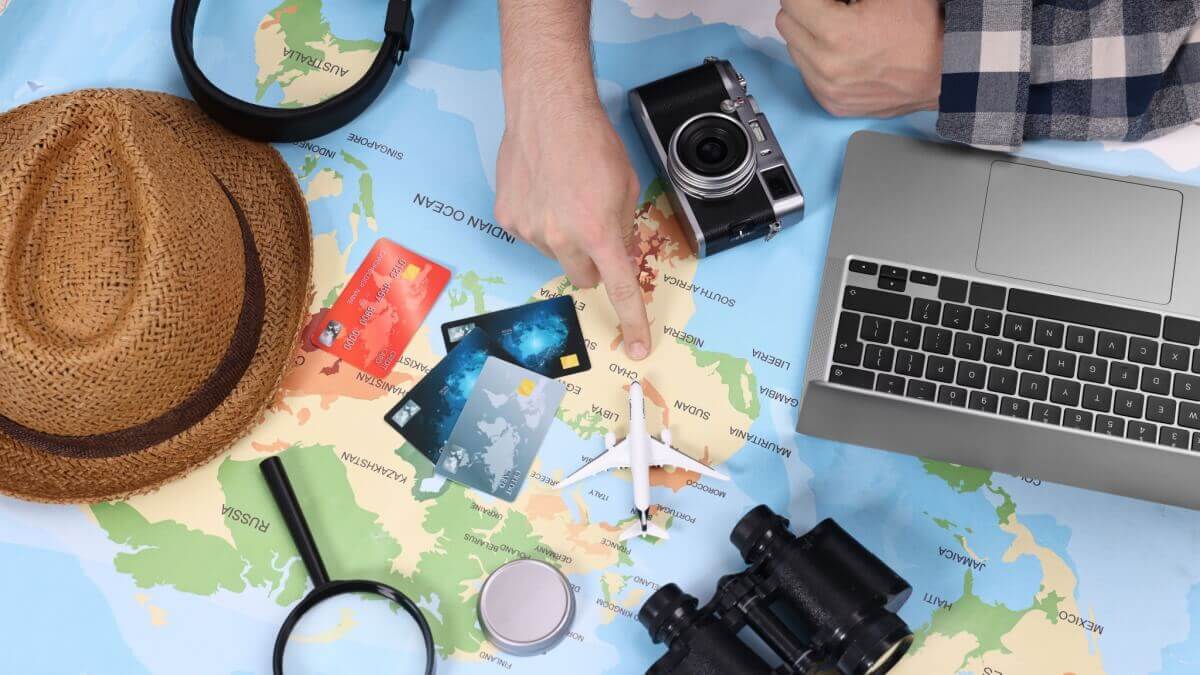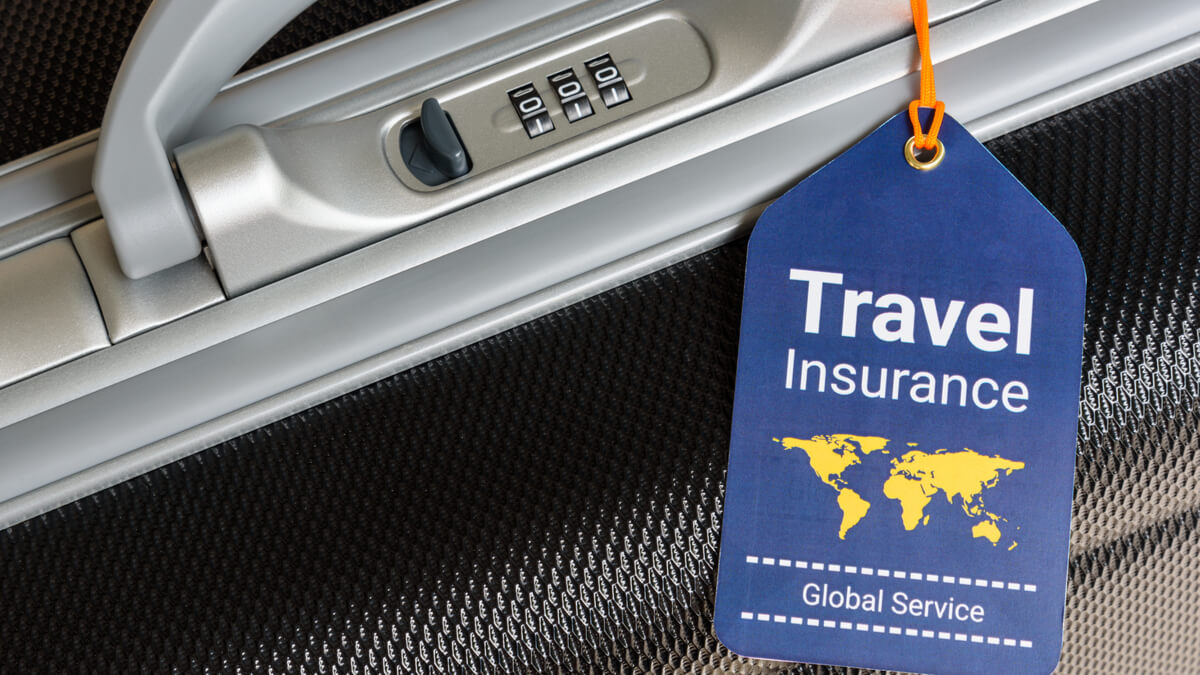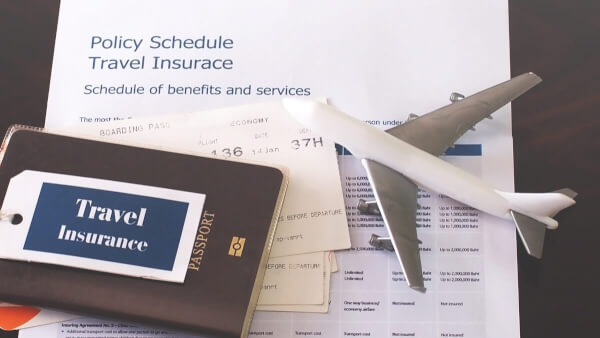Best travel pillows of 2025 compared: Find the top-rated neck pillows for long flights
Compare 6 top travel pillows on support, comfort, portability, and value for your travels like long flights. Find the best neck pillow to fit your needs.

Got an Australian passport? Get ready to unlock a world of visa-free travel! Australian passport holders enjoy incredible freedom of movement, with access to a whopping number of countries without needing a visa beforehand - many of them are either completely visa-free or offering visa-on-arrival for Australian citizens, plus you can travel to handful of them with a simple Electronic Travel Authorization (eTA) or simple e-visas for Australian citizens, which means you can apply and get a visa online.
Want to know where you can go visa-free with an Australian passport? Read on to learn more and what to expect at immigration when carrying an Australian passport.1
We'll also share some essential tips for visa-free travel and introduce the Wise travel card – your perfect companion for managing expenses abroad.
While an Australian passport grants you access to 189 countries without a pre-arranged visa, it's important to understand the nuances. "Visa-free" doesn't always mean you can simply show up! Let's break down the different types of entry you can enjoy with your Aussie passport.
Australian passport holders can enter 139 countries visa-free. This means you can show your passport and enter the country without a visa, upon approval at immigration. The exhaustive list where this applies includes popular countries like China, Argentina, Brazil, Mexico, many nations in the European Union, and the United Kingdom. The entire list is available here.2
There are caveats: visa-free entry is generally only for tourism, including seeing family and friends, and most countries have a limit on how many days you can stay. Check with your destination’s embassy or consulate locally for more information.
Visa-on-arrival (VOA) lets Australian passport holders travel to 42 countries without a visa beforehand, but receive one upon arriving at the entry port. You will need to show your passport and be approved for a VOA by immigration at your destination. The visa will typically be added to your passport and detail what is allowable and not, including the length of your stay.
You can find the full list of countries that offer VOA to Australian passport holders. Some of the countries include Bangladesh, Egypt, Indonesia, Cambodia, Nepal, the Maldives, Saudi Arabia, and the UAE.3
🌏 Heading abroad? Compare the best travel cards in our guide for the smartest way to spend overseas.
Electronic Travel Authorization (eTA) is another way to simplify entry for Australians to specific countries. With an eTA, you apply for travel authorization online before travelling. Eight countries currently offer the eTA facility for Australians:4
You will still be given an entry decision by a border agent but the eTA makes the process faster. The most important thing is to make sure you apply for the eTA before you travel.
Australia has a special relationship with New Zealand and both offer citizens special immigration rights. This means that Australian passport holders don’t need a visa to visit New Zealand, and vice versa.
Australia and New Zealand signed off on the Trans-Tasman Travel Arrangement, a mutual treaty that came into effect in 1973 and offers citizens on both sides unrestricted movement. Australians travelling to New Zealand can benefit from this special arrangement. For more information, check out our ultimate guide for Australians to travel to New Zealand.
Australia introduced the Special Category Visa for New Zealanders in 1994. This means that New Zealand citizens don’t require visas to enter, study, reside, and work in the country. Similarly, New Zealand has extended this facility to Australian PR (Permanent Residency) holders and Resident Return Visa holders.5
Business travellers can find it time-consuming to frequently apply for visas to visit partners in other countries. The regional cooperative forum, Asia-Pacific Economic Cooperation (APEC), of which Australia is a member, has helped business travellers by introducing initiatives like the APEC Business Travel Card (ABTC).
ABTC offers various benefits, such as visa-free travel, fast-track immigration at major international airports, and permission to remain in the foreign country for 60 to 90 days. Work travel can get much easier for Australian passport holders with an ABTC card.
Australia is also among the 10 participating nations that offer a virtual ABTC, which can be easily accessed online.6
Dive deeper into how it works and how to get one in our article about the APEC business travel card.
While Australian passport holders have visa-free entry to 189 countries, each has specific rules depending on their mutual agreements with Australia. You may not be allowed entry if your passport expires soon or you intend to enter for income-earning activities, for instance. So, it's a good idea to check the individual country’s policies before travelling and make sure your passport is up-to-date and valid.
Travellers heading to a country that accepts Australian visitors with eTA need to apply for one before leaving.
In all cases, you can be penalized if you overstay or perform activities that are not allowed.
While many countries have open doors to Australian visitors, the total time you can stay depends completely on the country itself. Not all countries have the same restrictions on how long you can stay.
For example, most European nations in the Schengen Area allow for a maximum stay of 90 days in the region. While free to visit any Schengen state, Australian citizens are not allowed to stay in any individual member state for more than 90 days within 180 days.7
At the same time, the UK has different requirements. Australian citizens can visit the UK for up to six months without a visa, but their stay is restricted to three months if they enter from Ireland. Currently, the UK offers visa-free entry to Australians but, starting on 8 January 2025, you will need an eTA.8
Australian citizens can visit specific Asian countries like Singapore, the UAE, Qatar, and Oman without a visa. However, the period of stay differs from one country to the other. Generally, Asian nations offer visa-free stays between 30 and 90 days.
The US Visa Waiver program allows Australian citizens to stay up to 90 days, whereas Caribbean nations generally allow 3 to 6-month stays. The best bet is to check with your destination’s stay restrictions and plan your trip accordingly.
When you’re getting ready for your trip, make sure you have the right documents with you - even if you are going visa-free. Australian passport holders will typically need:
In some countries, you may be asked to present additional documents at the border so check online for everything that you need before you leave Australia.
The world can be an exciting place to discover, there are certain things to keep cautious of. The Australian government provides a warning about countries that are safe to travel to, and those that can put citizens at risk- even if they offer visa-free travel. For example, Israel offers visa-free entry, and Lebanon offers visas on arrival. However, the Australian government cautions citizens not to travel to these places because of the current unrest. As an Australian traveller, you should heed these warnings and try to avoid countries that can put your life in danger.
You can check out the travel advisories by visiting the official website for more information.
Using your credit or debit card for foreign spending may make sense if you don’t get charged international transaction fees and have a favourable exchange rate. Many providers also place a markup on the mid-market exchange rate — the currency conversion rate you usually see on Google, and the one used by Wise.
Wise offers a convenient travel card and money transfer services that make managing your finances abroad a breeze. The Wise card lets you spend like a local in over 150+ countries, with
1. Visa-free countries for Australian passport holders
2. List of visa-free countries for Australians
3. List of visa-on-arrival countries for Australians
4. List of eTA countries for Australians
5. Trans-Tasman Agreement
6. APEC Business Travel Card
7. Australian visa policy for the Schengen Area
8. Visa policy for the UK
*Please see terms of use and product availability for your region or visit Wise fees and pricing for the most up to date pricing and fee information.
This publication is provided for general information purposes and does not constitute legal, tax or other professional advice from Wise Payments Limited or its subsidiaries and its affiliates, and it is not intended as a substitute for obtaining advice from a financial advisor or any other professional.
We make no representations, warranties or guarantees, whether expressed or implied, that the content in the publication is accurate, complete or up to date.

Compare 6 top travel pillows on support, comfort, portability, and value for your travels like long flights. Find the best neck pillow to fit your needs.

Compare the best eSIMs for international travel. Our guide covers top providers, plans, pricing, and key factors to help you stay connected abroad.

Planning a trip to Iceland? Discover if tap water is safe to drink for travellers. This is your guide on Iceland's water quality.

Planning your next trip? Our Cover-More travel insurance review covers all you need to know about coverage, pricing, claims process and more

Planning your next trip? Our ahm travel insurance review covers all you need to know about coverage, pricing, claims process and more

Planning your next trip? Our Fast Cover travel insurance review covers all you need to know about coverage, pricing, claims process and more